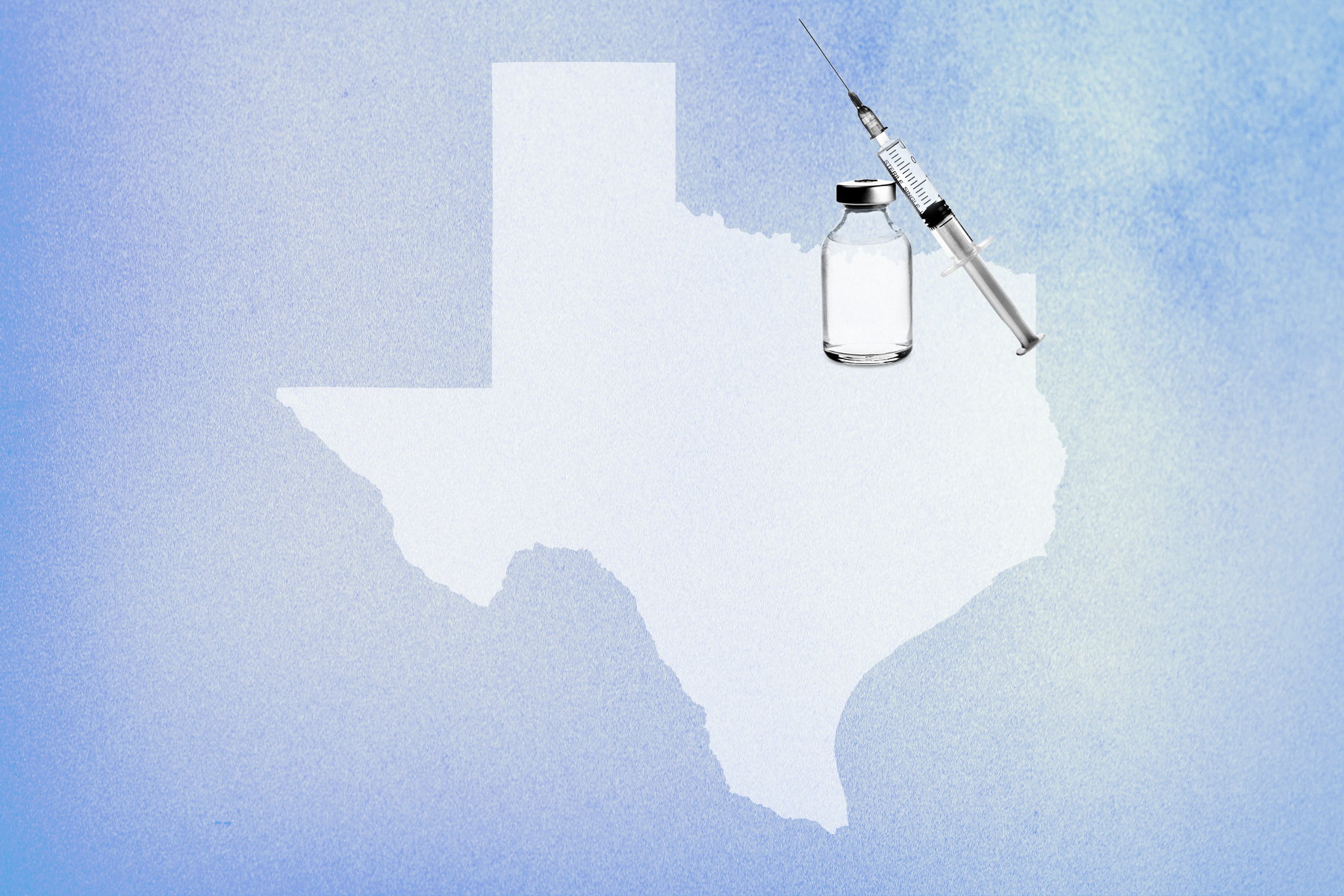This will be updated as the situation evolves. Last updated 3/15, at 3 p.m.
Dallas County has administered more than 670,000 COVID-19 vaccines through March 15. About 450,000 people have received first doses while 240,000 are fully vaccinated. Texas has administered more than 8 million doses. Its population share—9 percent of all Texans are fully vaccinated—is 47th in the country. One in five Texans are still hesitant to receive the vaccine. To combat vaccine hesitancy, the state has launched a $2.3 million campaign to encourage Texans to get vaccinated.
Currently, only those in groups 1A and 1B are eligible to receive the vaccine. Starting March 15, Texans older than 50 will become eligible to receive it. The state is calling this group 1C. Still, health authorities encourage everyone to register now to help understand how many vaccines need to be distributed. Read on to learn where you can register, where they are currently distributing the vaccine, vaccine efficacy, and what to know once you have been vaccinated.
Eligibility:
The Texas Department of Health and Human Services has announced that every adult will be eligible for the vaccine beginning on March 29. Latest estimates say that a vaccine for children will be available in early 2022.
With the increase in eligibility, volunteers are needed at the county’s vaccine site at Fair Park. Learn more about that opportunity here.
Registration:
After some infighting between Dallas County and the City of Dallas, both entities have vaccination locations. Hospitals and pharmacies are also registering people for the vaccine. UT Southwestern and Baylor University Medical Center are contacting eligible patients, but the public can register in various locations.
Pharmacies, too, are now vaccinating eligible patients.
Click below to register for a vaccine:
Dallas County and city of Dallas: Register online or call 855-466-8639.
City of Garland: Register online or call 972-205-3900
Tarrant County: Register online or call 817-248-6299
Collin County: Register online.
Denton County: Register online or call 940-349-2585
Albertsons: Check availability online.
CVS: Vaccines are on the way to some locations, so check the CVS website.
H-E-B Pharmacy: Schedule appointments online as vaccines become available.
Kroger: Check availability online.
Tom Thumb: Check availability online.
Walgreens: Vaccines are on the way to some locations, so check the Walgreens website.
Walmart: Schedule appointments online as vaccines become available.
Locations:
The state has a handy interactive map to help find vaccination hubs all over the state, including several hubs in North Texas. According to the state’s latest allotment guide, there are five entities in the city of Dallas that have received vaccines, including Baylor University Medical Center, the City of Dallas, Dallas County, Parkland Hospital, and UT Southwestern Medical Center. For the week of March 1, only Baylor, the City of Dallas, Dallas County, Parkland, and UTSW, received 25,890 doses.
The federal government is also standing up three vaccination locations statewide, including AT&T Stadium in Arlington and Fair Park in South Dallas, which are now up and running. The three sites are supposed to administer 10,000 doses a day. You can see how many doses the federal government has allotted to the state here. The registration for the federal sites can also be done through Dallas County and City of Dallas. You can join the waitlist for the federal site, but only residents in 1A or 1B and teachers from 17 ZIP underserved ZIP codes are eligible. Those ZIP codes are: 75042, 75061, 75150, 75210, 75211, 75212, 75215, 75216, 75217, 75220, 75224, 75227, 75228, 75231, 75237, 75241, 75243.
Providers and patients alike are wondering if their primary care physician will be part of the vaccination effort. So far, many community physicians are in the dark as to if and when they will receive doses to administer to their patients, according to Dr. Jim Walton, president and CEO of Genesis Physicians Group.
Vaccines:
There are currently three approved vaccines being administered in the United States. The Moderna and Pfizer-BioNTech versions use the mRNA of the virus to help our immune systems build up antibodies without injecting a small amount of the vaccine into the body. Both of those require two shots. The Pfizer version requires two doses three weeks apart, and the Moderna requires two doses four weeks apart. In both cases, the first dose has little to no impact, but the second dose has caused varying degrees of fever and body aches that usually dissipate after 24 hours.
The one-shot Johnson & Johnson vaccine has also been distributed to the state, including hubs around North Texas. Moderna and Pfizer are 95 percent effective in preventing symptoms of COVID-19, but more data is needed to determine if one can still spread COVID-19 once they have been vaccinated. For both vaccines, it takes two to three weeks for the body to develop the antibodies to prevent symptoms.
Three more vaccines are on the way. The Johnson & Johnson version is considered a game-changer for public health authorities who say the two doses are difficult to administer to transient communities. Its efficacy improves over time, but begins at about 74 percent. It is 100 percent effective in preventing severe cases of the virus.
I’m vaccinated. What’s next?
Even though the vaccines effectively prevent symptoms within weeks, the CDC recommends that vaccinated individuals continue masking and social distancing because there isn’t enough data about whether they can still spread the virus. In addition, there isn’t enough data about how the virus will react to real-world conditions. With several variants of the virus making an appearance in the United States and some demonstrating resistance to existing vaccines, precautions need to be taken until the population achieves herd immunity and scientists better understand how the vaccines will protect from these variants.






